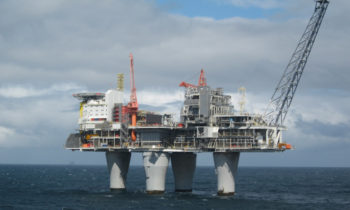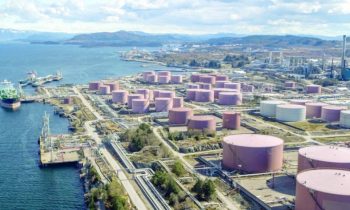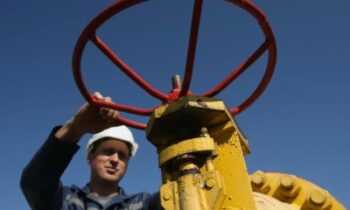 MEPs have rejected a proposal saying that the EU should work for a total ban on oil drilling in the Arctic.
MEPs have rejected a proposal saying that the EU should work for a total ban on oil drilling in the Arctic.
The proposal was part of the European Parliament’s report on an integrated EU policy for the Arctic, which was voted on Thursday (16 March).
MEPs voted to remove parts of the report that called for a future total ban on oil drilling and extraction of Arctic oil and gas, and that the EU should pressure international partners to put an end to offshore drilling in Arctic waters.
They let through, however, a paragraph supporting a ban on oil drilling in the icy Arctic waters of the EU and the EEA, a proposal without larger effect as Norway already bans drilling of icy waters.
The Arctic is estimated to hold 22 percent of the world’s undiscovered oil and gas resources. The melting of Arctic ice is unlocking new opportunities in the form of shipping routes and gas and oil stocks, which could further hurt the environment.
The parliament’s position is non-binding, but Norway has taken it very seriously nonetheless.
In the last few weeks, Norwegian MPs have travelled to Brussels in a bid to persuade MEPs to remove the controversial references.
Eirik Sivertsen, chair of the Norwegian parliament’s delegation for Arctic cooperation, has furthermore sent a letter to MEPs saying that climate change “cannot be solved by symbolic actions.”
“The problems of climate change were not created in the Arctic and cannot be solved in the Arctic alone,” he said.
There have also been calls for the Norwegian EU minister, Frank Bakke-Jensen, to resign over his handling of the situation.
Norway was the first industrial country in the world to ratify the 2015 climate Paris agreement, but all parties are committed to continued Arctic oil drilling.
Green pressure groups have taken legal action against the Norwegian government in an attempt to force it to stop offering new drilling licenses for the Barents sea.
The European Parliament debated the report on Wednesday evening.
Estonian liberal, Urmas Paet, a co-rapporteur, reminded MEPs that the EU is dependent on Norway if the bloc wants to reduce its dependence on Russian oil and gas. He argued that there is a need to respect international law, in reference to the law of the sea, which states that coastal states are sovereign to enjoy resources on the continental shelf.
Finnish centre-right MEP Sirpa Pietikainen, the other author of the report, told EUobserver that the centre-right EPP group didn’t back the ban on Arctic drilling.
Pietikainen said it was nonetheless problematic that “anyone is drilling for more fossil fuels anywhere in the world, and in such sensitive areas as the Arctic in particular”.
She argued that there was also a “carbon bubble”, the idea that it’s economically futile to invest in fossil fuels when most of the existing oil and gas reserves have to stay in the ground if we are to survive as a civilisation.
Pietikainen added that even if the report was non-binding, it was important because it could feed into EU legislation at a later stage, and this was what had made Norway nervous.
The parliament, in its final report, asked to step up cooperation between Arctic members so as to better protect the unique ecosystem. It spoke of the importance of listening to indigenous people, such as the Sami, and calls for the creation of a research centre – financed by the EU.
The Arctic’s temperature has increased steadily over the years, around twice as fast as the global average. Sea ice has shrunk significantly – there is around 40 percent less than the amount in summer 35 years ago.
(euobserver)



